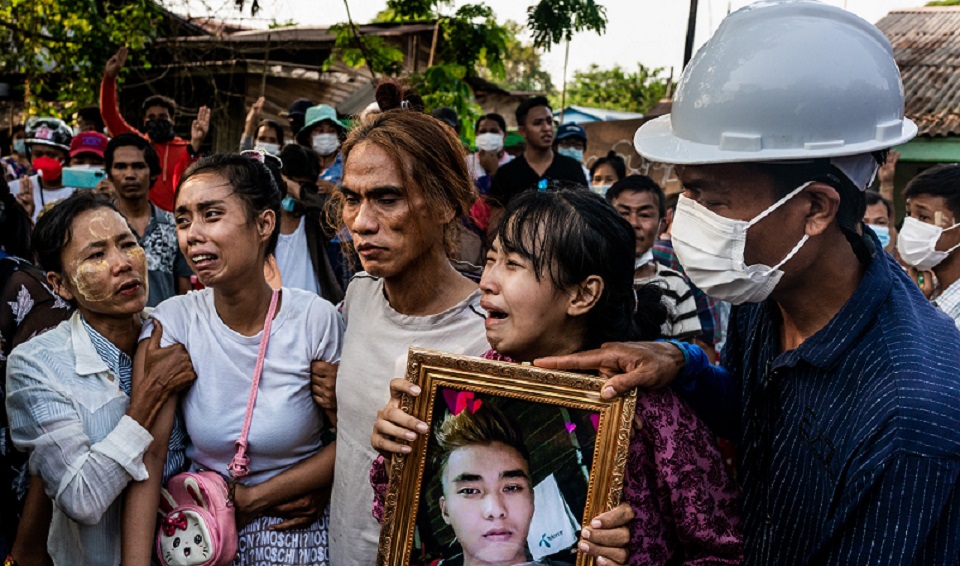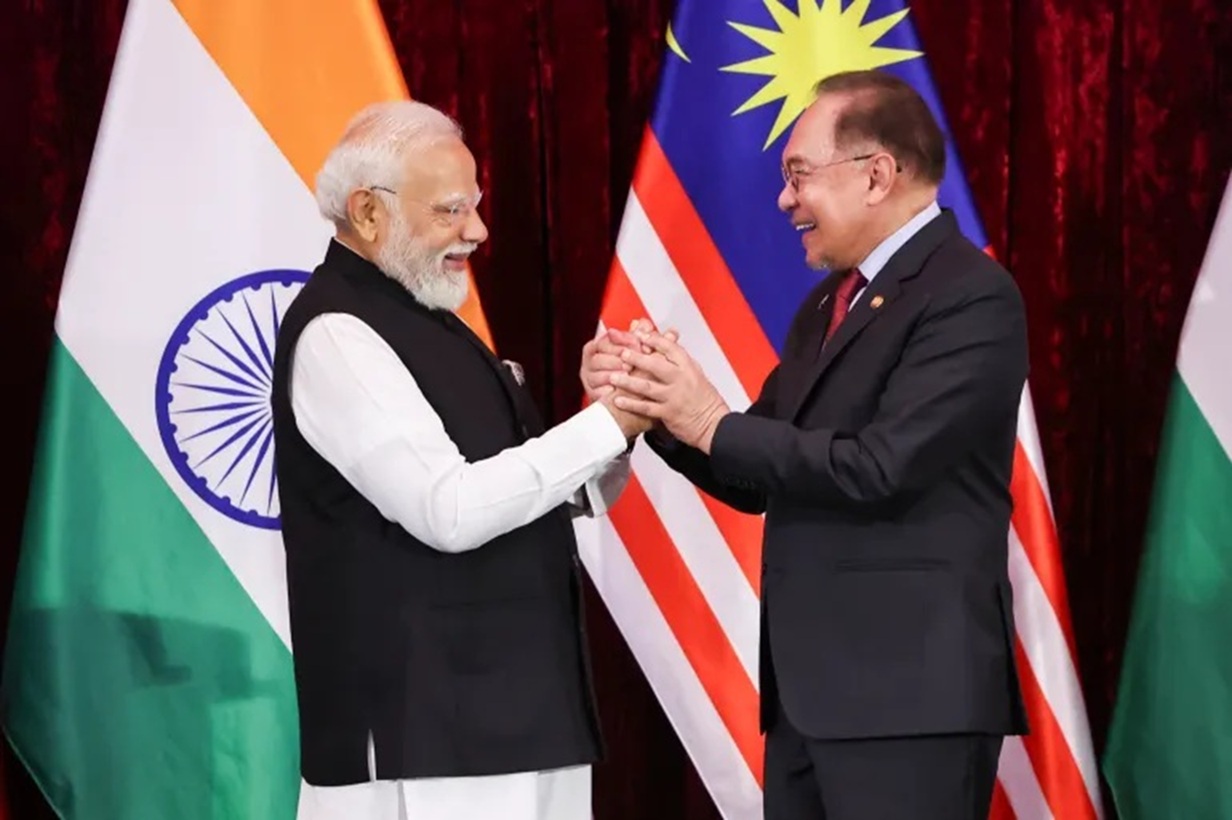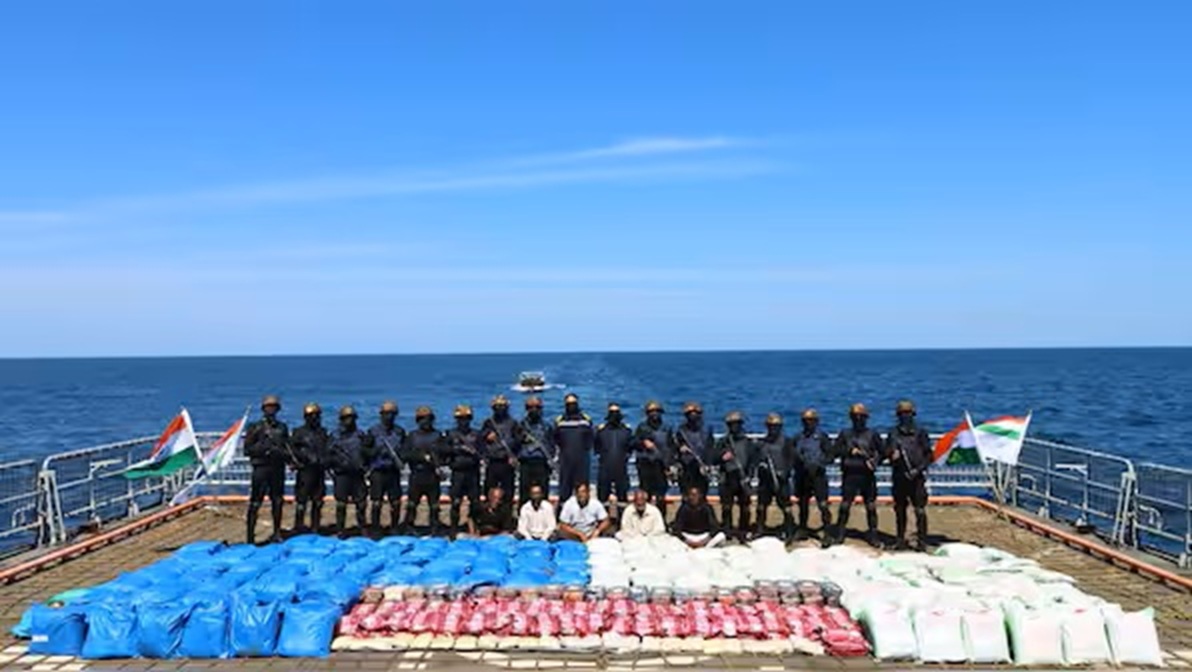Crimes` against humanity by foreign nationals is a challenge for judicary.
The world, at least the eastern parts of it was busy looking into China’s moves in the South China Sea (SCS) and devising new ways to fight their pandemic ridden economies. In the process, a development of considerable import in the heart of Europe, Koblenz in Germany, missed majority attention.
Eyad al-Gharib, a former secret police officer, was sentenced a court in Koblenz to four and a half years in prison for aiding and abetting crimes against humanity for his role in arresting and transporting protesters to an interrogation centre known for torture nearly a decade ago in Syria. Eyad entered Germany in April 2018 and was arrested along with a more senior Syrian intelligence officer, Anwar Raslan, in February 2019. Syria sunk into political chaos and the ruling disposition of Basheer al-Assad apparently has spared no means to quell the local populations not inclined to support its agenda. As a result, Russia, America and major powers in Europe have directly or indirectly been involved in the Syrian crisis for over a decade now, if not for a longer time, in order to bring peace and stability.
Eyad’s conviction was made possible by a series of developments in the international human rights law regime, especially after the Rome Statute for the establishment of International Criminal Court 1998 was adopted on 17 July 1998. Article 5 and 7 of the Statute deal with the Crimes within the jurisdiction of the Court and Crimes against Humanity respectively. Germany being a party to the Rome Statute has also incorporated the crime against humanity in its national law as below:
- Crimes against humanity: Code of Crime against International Law 2002, s. 1 (applies to crimes against humanity committed abroad since 2002); – Criminal Code 1998, s. 7 (2) (2) (see war crimes; this provision would permit German courts to exercise universal jurisdiction over conduct amounting to crimes against humanity committed before 30 June 2002, provided it was also a crime under German law)
Criminal Code 1998, – s. 6 (Acts Abroad Against Internationally Protected Legal Interests) (9) (courts can exercise jurisdiction over acts which, on the basis of an international agreement binding on the Federal Republic of Germany, must also be prosecuted if they are committed abroad; this provision applies to grave breaches of the Geneva Conventions committed before 30 June 2002) – s. 7 (Applicability to Acts Abroad in Other Cases) (2) (2) (German criminal law applies to other acts, which were committed abroad before 30 June 2002 if the act is punishable at the place of its commission or the place of its commission is subject to no criminal law enforcement and if the perpetrator was a foreigner at the time of the act, was found to be in Germany and, although extradition was permitted under the Extradition, was not extradited) (this provision applies to conduct that amounts to a war crime and is defined as a crime under German law)
Invoking Universal Jurisdiction, the German court was thus able to prosecute the Syrian officials when they stepped into German territory.
The case of Eyad and his prosecution brings to light yet another important dimension in the development of international human rights law. In the earlier instances like Rwanda, Cote d’Ivoire, Yugoslavia and others, a landmark principle of law was established by the ICC, that even Heads of State (present or former) or high ranking officials are not immune from prosecution for crimes specified under the Rome Statute. Some of the most prominent trials and convictions of such nature are:
- United Kingdom’s consideration of Spain’s request to extradite former Chilean dictator Augusto Pinochet in 1998
- U.S. prosecution of the former Liberian president’s son, Chuckie Taylor
- Spanish prosecution of Guatemalan officials in the Guatemalan genocide case; prosecution of El Salvadoran officials for the murder of six Jesuit priests; prosecution of an Argentine naval officer for crimes against humanity during the Dirty War
- The ICTY trial of Slobadan Milosevic, former President of Serbia and Yugoslavia
- The Sierra Leone trial of Charles Taylor, former President of Liberia
- Jean-Paul Akayesu and Jean Kambanda (former interim Prime Minister) cases of Rwanda
While the trials mentioned above established the principle of accountability on the part of high ranking officials, the Omar Al-Bashir incident of 2015 also revealed an important Achilles heel in enforcing this principle. From the time Bashir seized power in a military coup in 1989, he had directly or otherwise overseen conflicts in Sudan that even led to splitting the country into two. South Sudan was formed in 2005. Darfur in the aftermath of the split become etched in human conscience as one of the worst humanitarian crises that the world had seen in contemporary times. Even as thousands were killed, women raped and millions fled the countries, international concern for bringing peace to Sudan became acute. Omar Al-Bashir remained the focus of these violations.
In 2015, Bashir visited South Africa for a Heads of State meet. The Pre-Trial Chamber of ICC initiated a request to the South African government to detain Bashir and transfer him to the Court to stand trial for crimes against humanity. South Africa being a party to the Rome Statute was under obligation to concede to the request of the Pre-Trial Chamber. However, the government decided instead to adhere to the norms of immunity enjoyed by Heads of State or high ranking officials contained in the UN Convention on Special Missions 1969. Article 29 of the Convention states:
- The persons of the representatives of the sending State in the special mission and of the members of its diplomatic staff shall be inviolable. They shall not be liable for any form of arrest or detention. The receiving State shall treat them with due respect and shall take all appropriate steps to prevent any attack on their persons, freedom or dignity.
In the process, South Africa allowed Bashir to return to Sudan after the visit, without acting upon the Pre-Trial Chamber’s request. This action was challenged in the Supreme Court of Appeal (SCA) in South Africa. The SCA upheld the government’s action, pointing to one major lacuna, that there was no UNSC Resolution for such arrest or prosecution.
South Africa’s action can also be understood in the light of an earlier verdict by the International Court of Justice (ICJ), which had upheld immunity to heads of state or high ranking officials in what is known as the Arrest Warrant Case. As Foakes point out, prosecuting officials or high ranking persons of the state by domestic courts in foreign countries is not merely a matter of law, it is also fraught with the need to maintain a delicate balance in international relations.
The practice of some courts and a substantial amount of commentary suggest that immunity does not apply to the criminal prosecution of former officials for international crimes committed while they were in office, but the exact limits of this exception to immunity are not clear. There remains a tension between the requirements of justice and the need to conduct international relations smoothly and effectively.
The Eyad and Bashir cases bring forth some important lessons in enforcing international human rights regime through domestic courts, when officials or high ranking persons of state, alleged to have committed crimes against humanity in their native countries, arrive into a foreign courts’ domestic jurisdiction:
- The country that intends to prosecute former or serving low ranking officials of another country must be a party to ICC and must have to enable domestic legislation.
- The official concerned must reside in the domestic court’s jurisdiction.
- In so far as heads of state or ranking high officials are concerned, the ICJ Arrest Warrant and Bashir case demonstrate that a UNSC resolution is necessary to accede to requests from the Pre-Trial Chamber of ICC for arresting, extracting to a foreign court/ICC jurisdiction or even trying the individual through a national court.
- Even then, the delicate issues vesting around international diplomatic relations, the potential diplomatic consequences of any such action and the ability of the acting country to display an unbiased commitment to international norms/rule-of-law regime need to be carefully evaluated before an action can be committed.
Disclaimer: The views and opinions expressed by the author do not necessarily reflect the views of the Government of India and Defence Research and Studies
Title image courtesy: https://english.aawsat.com/home/article/1104461/
References:
Hubbard, Ben (February 24, 2021). German Court Convicts Former Syrian Official of Crimes against Humanity, The New York Times (online). Retrieved from: https://www.nytimes.com/2021/02/24/world/middleeast/germany-court-syria-war-crimes.html
FINAL ACT OF THE UNITED NATIONS DIPLOMATIC CONFERENCE OF PLENIPOTENTIARIES ON THE ESTABLISHMENT OF AN INTERNATIONAL CRIMINAL COURT, 17 July 1998. See: https://legal.un.org/icc/statute/finalfra.htm
Amnesty International (2012). UNIVERSAL JURISDICTION: A PRELIMINARY SURVEY OF LEGISLATION AROUND
THE WORLD – 2012. Retrieved from: https://www.amnesty.org/download/Documents/24000/ior530192012en.pdf
https://legal.un.org/ilc/texts/instruments/english/conventions/9_3_1969.pdf
Mettraux, G., Dugard, J., & du Plessis, M. (2018). Heads of State Immunities, International Crimes and President Bashir’s Visit to South Africa, International Criminal Law Review, 18(4), 577-622. doi: https://doi.org/10.1163/15718123-01804005
Arrest Warrant of 11 April 2000 (Democratic Republic of the Congo v Belgium), Judgment, ICJ Reports 2002, p. 3; 128 ILR 1. The ICJ made it clear that such immunity subsists even where it is alleged that an international crime has been committed.
Foakes, Joanne (November 2011). Immunity for International Crimes? Developments in the Law on Prosecuting Heads of State in Foreign Courts, IL BP 2011/02, Chatham House. Retrieved from: https://www.chathamhouse.org/sites/default/files/public/Research/International%20Law/bp1111_foakes.pdf
For an interesting legal analysis in this dimension, see: Webb, Philippa (n.d.) United Nations Convention on Jurisdictional Immunities of States and Their Property New York, 2 December 2004, https://legal.un.org/avl/ha/cjistp/cjistp.html





